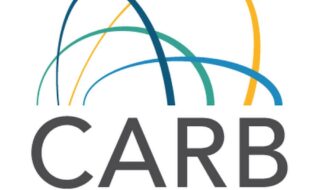March 30, 2025
CEQA targeted for thorough overhaul; Webinar on captive audience and artificial intelligence held
Welcome to the March 31-April 4 edition of the NFIB California Main Street Minute from your small-business advocacy team in Sacramento.
In observance of Cesar Chavez Day, the Legislature will not be in session today, March 31.
Ms. Wicks, Tear Down This Wall!
The big legislative news of last week was the unveiling of a package of 22 bills aimed at turbocharging California’s crying need for more housing construction.
“But one bill stands out for its potential to turn a landmark state environmental law on its head,” reported CalMatters. “… a proposal by Assemblymember Buffy Wicks would exempt most urban housing developments from the California Environmental Quality Act. Known as CEQA, the law requires government agencies to review and disclose the environmental impact of any public project, including new housing developments.
“If the bill [Assembly Bill 609] by the Oakland Democrat becomes law, it would mean:
— No more environmental lawsuits over proposed apartment buildings;
— No more legislative debates over which projects should be exempted from CEQA;
— Environmental justice advocates, construction unions and anti-development neighborhood groups can’t use CEQA to delay development.”
Whatever good intentions the 1970 bill creating CEQA, signed into law by then-Gov. Ronald Reagan, held out, it progressively worsened into its current state of a Berlin Wall to housing construction, as this damning paragraph from its Wikipedia entry explains.
“CEQA has been criticized for being abused (used for reasons other than environmental ones) to block, downsize, delay, or gain other concessions from new development. CEQA has even been used to block or delay projects that have positive environmental impacts, such as solar plants, wind turbines, bike lanes on pre-existing roads, and denser housing. One study found that 85% of CEQA lawsuits were filed by organizations with no record of environmental advocacy and 80% of CEQA lawsuits targeted infill development. CEQA has also been used by NIMBYs to block homeless shelters, student housing and affordable housing projects, by businesses to try to block competition, and by unions to force developers to use union workers.”
NFIB is thoroughly analyzing AB 609 for any devil in the details affecting our members. It is worth noting now, however, that in the last NFIB Small Business Problems & Priorities report, Unreasonable Government Regulations ranked 7th among the 75 issues measured, and Environment Regulations came in 45th, whereas in the California-specific Problems report, those issues came in first and 27th respectively.
On Other Legislative Matters
NFIB also spent part of last week working with its coalition partners on getting letters of support or opposition in front of a bill’s sponsoring legislator.
— In a letter to Assemblymember Ash Kalra opposing his Assembly Bill 692, the coalition said it will “disincentivize voluntary benefits programs for employees and is duplicative of existing law regarding reimbursements and trainings. It imposes significant penalties for any good faith error and improperly sweeps in independent contractors in a way that is at odds with the legal definition of an independent contractor.”
— In a letter to Assemblymember Liz Ortega, NFIB et al. pointed out her Assembly Bill 1234 “imposes a thirty percent ‘administrative fee’ on every single order, decision, or award issued by the Labor Commissioner. This is a penalty by another name. It is an automatic 30% increase of whatever amount is found owed by the employer, which may already include penalties.”
NFIB also added and upped in lobbing importance its opposition to two bills:
— Assembly Bill 1331 (Elhawary), which “… would limit the use of workplace surveillance tools, as defined, by employers, including by prohibiting an employer from monitoring or surveilling workers in private, off-duty areas, as specified, and requiring workplace surveillance tools to be disabled during off-duty hours, as specified.”
— Senate Bill 7 (McNerney), which “… would require an employer, or a vendor engaged by the employer, to provide a written notice that an ADS [automated decision systems], for the purpose of making employment-related decisions, is in use at the workplace to all workers that will be directly or indirectly affected by the ADS, as specified.”
Recorded Webinar on Captive Audience/Artificial Intelligence
Were you able to make our March 26, exclusive webinar for NFIB members on the subjects of captive audience and artificial intelligence? If not, it’s now online for your viewing. In it, Ben Ebbink, one of the state’s top labor and employment law attorneys, gives a presentation on the subjects of captive audience, artificial intelligence and a few other issues. Click here to view it.
We Didn’t Like the Idea Then. Doubtful We’ll Like it Now
“… the Legislature’s two transportation committees delved into the effects of reduced gas purchases and gas tax revenues,” wrote Dan Walters in his March 25 CalMatters column.
— “’It is a problem,’ said Lori Wilson, a Suisun City Democrat who chairs the Assembly Transportation Committee. ‘And while the gas tax has been a critical funding source for transportation improvements, it is becoming less effective as a user-based revenue mechanism. We need to explore new solutions that ensure transportation funding is fair and sustainable.’
— “What might those alternatives be?
— “A mileage fee is one being kicked around in political and academic circles, but administering it would require some way of monitoring when cars are being used, which raises privacy issues. Another alternative might be tolls that are common in some states and California imposes on some bridges, but the state has generally been toll-averse.”
California members of NFIB aren’t keen on the idea of a VMT tax. When asked on their 2015 State Member Ballot, Should California add to the current tax on motor fuel a vehicle miles traveled (VMT) tax to fund future highway and road construction and maintenance, 91% were opposed to the idea.
Has that opposition softened or changed in 10 years? Doubtful, but NFIB might be coming back to its members for a second opinion.
“According to Caltrans, Californians with gas-powered vehicles pay about $300 a year in state gas taxes,” reports ABC 7 in San Francisco. “But with a rise in electric vehicles, lawmakers are worried it won’t generate enough money.
— “Caltrans officials launched a pilot program in Aug. 2024 to test the road charge system. It concluded in January. The results of the program are expected to be released later this year.”
Calendar
— March 31: Cesar Chavez Day. Legislature not in session.
— April 10-21: Spring Break. Legislature not in session.
— May: Big month of bill deadlines for fiscal and policy committees. Check legislative calendar here.
— May: NFIB California Virtual Small Business Day. Day to be set. Check your email for further information and to register.
— May: State budget revise issued by governor’s office.
— May 26: Memorial Day. Legislature not in session.
— June 6: Last Day for Senate and Assembly to pass bills introduced in their chambers.
— June 15: Budget bill must be passed by midnight.
— July 4: Independence Day. Legislature not in session.
— July 18-August 17 Summer recess.
— September 12-January 5, 2026: Interim recess of the 2025-2026 session of the California State Legislature.
— October 15: Last day for governor sign or veto bills passed before September 12.
National
Highlights from NFIB Federal Government Relations Principal Josselin Castillo’s weekly report
— NFIB joined an amicus brief in the case Commissioner of Internal Revenue v. Jennifer Zuch at the United States Supreme Court. The case questions IRS enforcement proceedings and the protection of taxpayer property.
— A sigh of relief. America’s small businesses received a monumental BOI victory this month thanks to the relentless work by NFIB staff and most importantly, our members making their voices heard!
On March 21, FinCEN issued a new regulation that exempts all U.S. small businesses and U.S. persons from the BOI reporting requirements. This means that small businesses DO NOT need to file federal BOI reports. NFIB continues the fight to overturn BOI reporting requirements in federal court and repeal it in Congress in addition to welcoming this new rule.
Please help us send a strong message to Congress: Repeal the CTA once and for all.
TAKE ACTION. Stay updated on the latest developments. SBLC is happy to handle BOI member inquiries. info@nfib.org or 202-406-4443.
Next Main Street Minute, April 7. All Main Streets Minutes can be found on the NFIB website here. Pull down the California tab in the upper-right-hand corner.
NFIB is a member-driven organization advocating on behalf of small and independent businesses nationwide.
Related Articles














